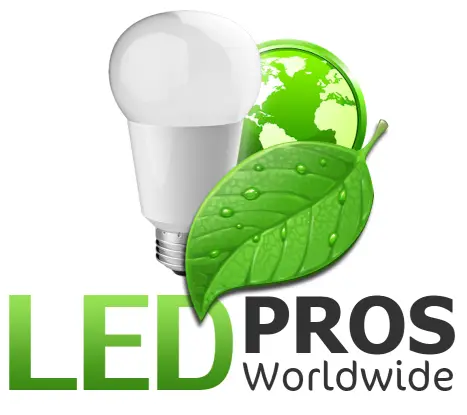Solar lights have become increasingly popular in recent years due to their eco-friendliness and cost-effectiveness. These innovative lighting solutions harness the power of the sun to illuminate our outdoor spaces, from gardens to parking lots. However, many people wonder, “Do solar lights need batteries changed?” In this comprehensive guide, we’ll delve into the world of solar lighting, exploring the pros and cons, and answering common questions about battery replacement and maintenance.
How Do Solar Lights Work?
Before we address the question of battery changes, let’s take a moment to understand how solar lights function. Solar lights are equipped with photovoltaic (PV) panels that convert sunlight into electrical energy. During the day, the PV panels charge the built-in rechargeable batteries, storing energy for later use. When the sun sets, the solar lights automatically turn on, using the stored energy to illuminate the surrounding area.
Do Solar Lights Require Battery Changes?
The short answer is: it depends. Most solar lights come with rechargeable batteries that are designed to last for an extended period. These batteries, typically lithium-ion or nickel-metal hydride (NiMH), can often last up to 2-3 years with proper care and maintenance. However, the lifespan of the batteries can vary depending on factors such as:
– Quality of the solar lights
– Frequency of use
– Exposure to extreme weather conditions
– Proper charging and discharging cycles
If you notice that your solar lights are not performing as well as they used to, or if they fail to illuminate at night, it may be time to replace the batteries.
Pros and Cons of Solar Lights
Before investing in solar lighting, it’s essential to weigh the advantages and disadvantages. Let’s explore some of the pros and cons of solar lights:
Pros:
- Energy-efficient and eco-friendly
- Cost-effective in the long run
- Easy to install and maintain
- Versatile and adaptable to various settings
- Provide illumination without relying on the electrical grid
Cons:
- Initial cost may be higher than traditional lighting
- Dependent on weather conditions for optimal performance
- Limited brightness compared to electric lights
- Require proper placement for maximum sun exposure
- May need occasional battery replacements
Solar Commercial Lighting: A Growing Trend
Solar commercial lighting has gained traction in recent years, thanks to its numerous benefits. Businesses and organizations are increasingly turning to solar lights to illuminate parking lots, walkways, and outdoor areas. Solar commercial lighting offers several advantages, such as:
– Reduced energy costs
– Improved safety and security
– Enhanced sustainability efforts
– Minimal maintenance requirements
When considering solar commercial lighting, it’s crucial to opt for high-quality, durable fixtures that can withstand the elements and provide reliable illumination throughout the night. Read more about The Ultimate Guide to Choosing the Best Solar Light for Your Outdoor Spaces here.
Outdoor Solar Lights That Work All Night
For those seeking outdoor solar lights that can provide illumination throughout the night, there are several options available. Some of the best solar lights that last 12 hours or more include:
- Motion-activated solar security lights
- Solar-powered street lights
- Solar path lights with high-capacity batteries
- Solar floodlights with adjustable brightness settings
When choosing outdoor solar lights that work all night, consider factors such as battery capacity, lumen output, and weather resistance to ensure optimal performance. Read more about How Many Lumens Do Your Outdoor Solar Lights Need? here.
 |
Frequently Asked Questions (FAQs)
- Can I replace the batteries in my solar lights myself?
– Yes, in most cases, you can replace the batteries yourself. Refer to the manufacturer’s instructions for guidance on how to access and replace the batteries.
- How often should I clean my solar lights?
– It’s recommended to clean your solar lights every few months to ensure optimal performance. Use a soft, damp cloth to wipe away dust and debris from the PV panels and the light fixture itself.
- Can solar lights charge on cloudy days?
– While solar lights can still charge on cloudy days, the charging efficiency may be reduced. It’s best to place your solar lights in an area that receives the most direct sunlight for optimal charging.
- Are solar lights waterproof?
– Most high-quality solar lights are designed to be water-resistant or waterproof, allowing them to withstand various weather conditions. However, it’s essential to check the manufacturer’s specifications to ensure your solar lights are suitable for your specific environment.
Types of Solar Batteries
When it comes to solar batteries for outdoor LED light fixtures, there are several types available, each with its own advantages and characteristics. Here are the most common types of solar batteries used in outdoor LED lighting:
1. Lithium-Ion (Li-Ion) Batteries
Lithium-ion batteries are the most popular choice for solar LED light fixtures due to their high energy density, long lifespan, and low self-discharge rate. They are lightweight, compact, and can withstand a wide range of temperatures. Li-Ion batteries also have a higher charging efficiency compared to other battery types, allowing for faster charging times.
Advantages:
– High energy density
– Long lifespan (up to 5 years or more)
– Low self-discharge rate
– Lightweight and compact
– Wide temperature range tolerance
2. Nickel-Metal Hydride (NiMH) Batteries
Nickel-Metal Hydride batteries are another common choice for solar LED light fixtures. They offer a relatively high energy density and are more environmentally friendly compared to nickel-cadmium (NiCd) batteries. NiMH batteries are also less prone to the “memory effect,” which can reduce battery capacity over time.
Advantages:
– Relatively high energy density
– Environmentally friendly (no cadmium)
– Less prone to the “memory effect”
– Affordable
3. Nickel-Cadmium (NiCd) Batteries
Although less common nowadays due to environmental concerns, nickel-cadmium batteries are still used in some solar LED light fixtures. They offer a long lifespan and can withstand extreme temperatures. However, NiCd batteries have a lower energy density compared to Li-Ion and NiMH batteries and are more susceptible to the “memory effect.”
Advantages:
– Long lifespan
– Can withstand extreme temperatures
– Affordable
Disadvantages:
– Lower energy density
– Susceptible to the “memory effect”
– Contains toxic cadmium
4. Lead-Acid Batteries
Lead-acid batteries are less frequently used in solar LED light fixtures but can still be found in some larger-scale applications, such as solar street lights. They are known for their durability and low cost. However, lead-acid batteries have a lower energy density, are heavier, and require more maintenance compared to other battery types.
Advantages:
– Durable
– Low cost
Disadvantages:
– Lower energy density
– Heavier and bulkier
– Require more maintenance
When choosing a solar battery for your outdoor LED light fixtures, consider factors such as energy density, lifespan, charging efficiency, environmental impact, and cost. Lithium-ion batteries are often the preferred choice due to their superior performance and longevity, but other battery types may be suitable depending on your specific requirements and budget.
Final Thoughts
In conclusion, while solar lights are designed to be low-maintenance and long-lasting, they may require battery changes over time. By understanding the factors that impact battery life and taking proper care of your solar lights, you can ensure optimal performance and longevity. Whether you’re considering solar commercial lighting or outdoor solar lights that work all night, weighing the pros and cons and choosing high-quality products will help you make an informed decision. Embrace the power of solar lighting and enjoy the benefits of eco-friendly, cost-effective illumination for your outdoor spaces.
Your message has been sent
